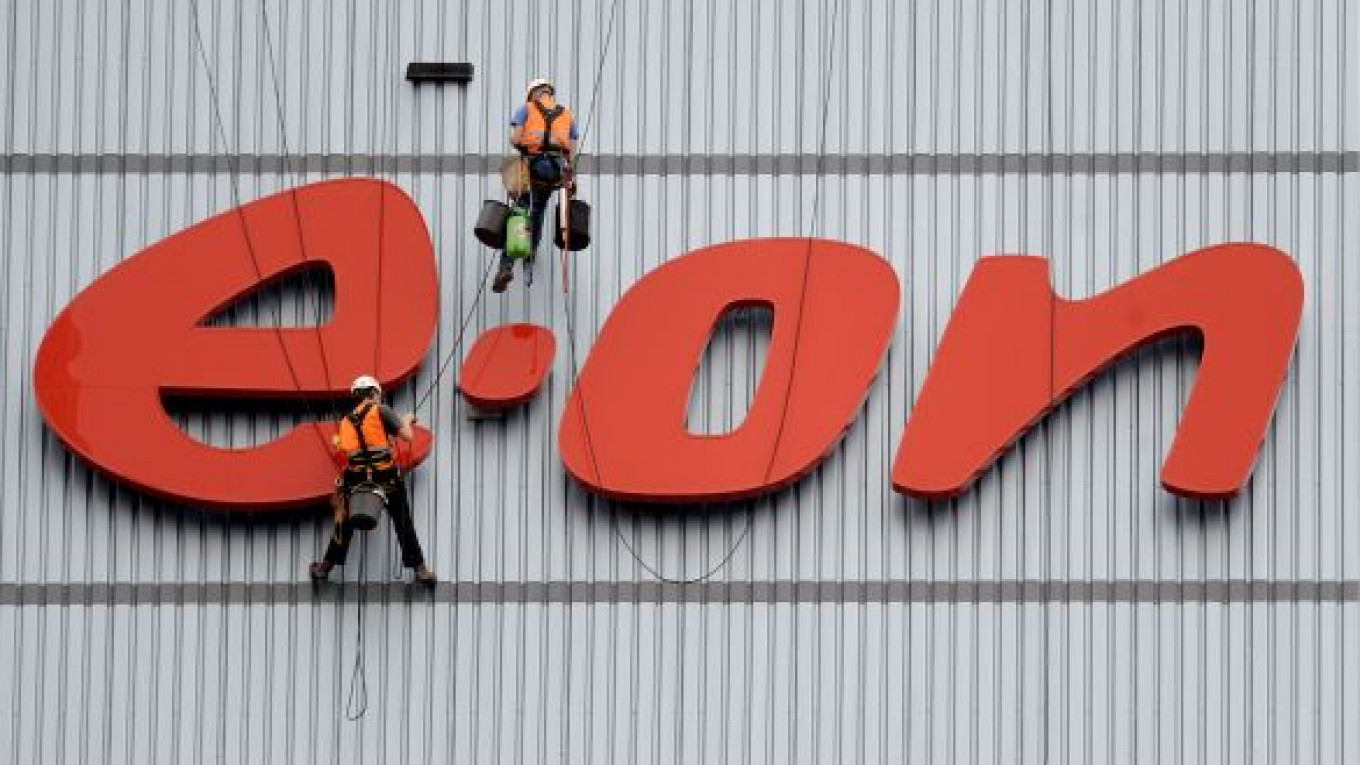FRANKFURT — Gazprom has given in to customer pressure and offered German utility E.On a price cut on its long-term gas supplies, boding well for other firms from Germany, Italy and Poland that are seeking to renegotiate.
Germany’s biggest utilities company said Tuesday that it had reached a settlement with Gazprom on long-term gas supply contracts that would significantly raise its earnings outlook for 2012.
“E.On expects the settlement to have a positive impact of about 1 billion euros ($1.26 billion) on the group’s half-year results,” E.On said, adding that it would also end ongoing arbitration proceedings with Gazprom.
The settlement includes retroactive adaptation of pricing conditions back to the last quarter of 2010, E.On said.
“This agreement represents a compromise and takes into account the current trends and developments of the natural gas market,” Gazprom Export chief executive Alexander Medvedev said in a statement.
The compromise offers hope for other European firms seeking to revise deals with Russia’s gas export monopoly.
European gas firms such as Germany’s E.On Ruhrgas are being squeezed as they buy gas under long-term deals with Gazprom or Statoil linked to the price of oil while having to sell it to customers at lower retail prices linked to the freely traded spot market.
As a result, Gazprom has been in arbitration with major European customers such as E.On and Poland’s PGNiG.
While the deal means lower revenues for Gazprom in the short term, the Russian company said it safeguarded its pricing model as it faces rising competition from liquefied natural gas from overseas.
“The value of this deal is not only in today’s financial results, but more in the long-term stability reached, [and] the long-term contracts remain the basis for supplying Europe with gas,” Gazprom said.
About 40 percent of the European Union’s gas imports are supplied by Russia, while 80 percent of Gazprom’s revenues come from European customers.
Gazprom is aiming to sell 150 billion cubic meters of gas to Europe this year, the same as in 2011, but analysts doubt this volume can be reached, as sales and output have plummeted due to the euro zone’s financial crisis and rivalry from other sources, such as LNG from Qatar.
“Gazprom had to give up some price concession, as Europe is in recession and as gas is being displaced out of the merit order of power generation in favor of coal,” Societe Generale analyst Thierry Bros said.
E.On said Tuesday that it now expected EBITDA of 10.4 billion to 11.0 billion euros ($13.1 billion to $13.8 billion), compared with a previous target corridor of 9.6 billion to 10.2 billion euros.
Underlying net income for the year is expected to reach 4.1 billion to 4.5 billion euros, up from a previous forecast of 2.3 billion to 2.7 billion euros.
“The deal with Gazprom is good news and helps to solve a big problem for the company,” a Frankfurt-based trader said.
E.On renegotiated most of its long-term gas contracts, for instance with Norwegian supplier Statoil, before the deal with Gazprom.
“With the successful completion of the talks with Gazprom, E.On has now successfully renegotiated the pricing conditions of all of its currently oil-indexed volumes under its long-term gas supply contracts,” E.On said. “This marks a major milestone in restoring the competitiveness of E.On’s long-term gas contracts.”
A Message from The Moscow Times:
Dear readers,
We are facing unprecedented challenges. Russia's Prosecutor General's Office has designated The Moscow Times as an "undesirable" organization, criminalizing our work and putting our staff at risk of prosecution. This follows our earlier unjust labeling as a "foreign agent."
These actions are direct attempts to silence independent journalism in Russia. The authorities claim our work "discredits the decisions of the Russian leadership." We see things differently: we strive to provide accurate, unbiased reporting on Russia.
We, the journalists of The Moscow Times, refuse to be silenced. But to continue our work, we need your help.
Your support, no matter how small, makes a world of difference. If you can, please support us monthly starting from just $2. It's quick to set up, and every contribution makes a significant impact.
By supporting The Moscow Times, you're defending open, independent journalism in the face of repression. Thank you for standing with us.
Remind me later.






